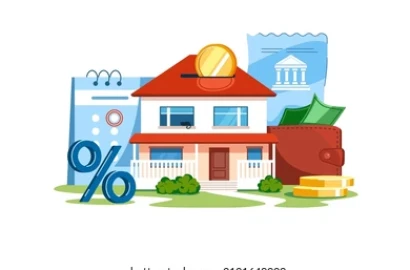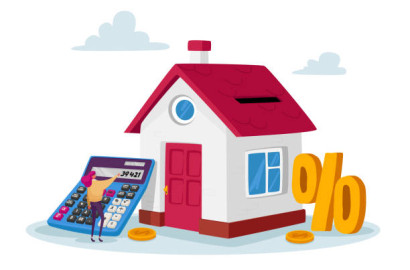Buying property in Bangalore, one of India’s most prominent real estate markets, can be an exciting but complex process. Whether you're purchasing for personal use or as an investment, understanding the local property market, legal requirements, and financing options is crucial. Here’s a step-by-step guide on how to buy property in Bangalore:
1. Determine Your Requirements and Budget
- Location: Bangalore is a large city with diverse neighborhoods, ranging from the central business districts to more suburban areas. Choose a location based on your work, family needs, and proximity to amenities such as schools, hospitals, and public transport.
- Type of Property: Decide whether you want to buy a residential property, commercial property, or land. Within residential properties, you can choose between apartments, independent houses, or villas.
- Budget: Assess your finances to establish a clear budget. Include additional costs like registration, stamp duty, legal fees, and home loan processing charges.
2. Research the Market
- Current Market Trends: Keep an eye on market trends in Bangalore, as the real estate market can fluctuate. The city's real estate is known for its demand-driven prices, with areas like Whitefield, Koramangala, Indiranagar, and Sarjapur Road often seeing growth due to the IT industry.
- Infrastructure Development: Consider emerging areas where infrastructure developments, such as new metro lines, roads, and commercial projects, could increase property value.
3. Check Legal Title and Documentation
- Verify Property Title: Ensure the property has a clear legal title, meaning there are no encumbrances or legal disputes. The title deed should be in the name of the seller, and the property must be free from litigation.
- Encumbrance Certificate (EC): This document shows the property's transaction history and confirms it is free from loans or mortgages. You can obtain an EC from the sub-registrar office.
- RERA Registration: Ensure the property is registered with the Real Estate Regulatory Authority (RERA), which ensures the project is approved and compliant with regulations.
- Approved Plans: Check that the building plans, layout, and construction are approved by local municipal authorities (BBMP - Bruhat Bengaluru Mahanagara Palike).
4. Evaluate Property’s Builder Reputation (If Buying from a Developer)
- Developer’s Credibility: If you're buying from a builder, research their reputation. Look for reviews or feedback from past buyers and check their track record for delivering projects on time.
- Quality of Construction: Ensure that the quality of construction meets industry standards. It’s also advisable to check the builder’s after-sale services, warranty, and maintenance agreements.
5. Financing the Property Purchase
- Home Loan: Most buyers in Bangalore opt for a home loan. You’ll need to check your eligibility with various banks or financial institutions, which will assess your income, credit score, and the property’s value.
- Down Payment: Typically, banks finance 80-85% of the property value, so be prepared to pay the balance as a down payment.
- Interest Rates and EMI: Compare interest rates across different banks and financial institutions. Consider the loan tenure, EMI amount, and repayment terms before finalizing your loan.
6. Negotiate the Price
- Price Negotiation: Whether you are buying from an individual seller or a developer, don’t hesitate to negotiate the price. Real estate agents often help with the negotiation process.
- Agreement Terms: Ensure that all terms and conditions, including the final price, payment schedule, possession date, and other relevant details, are clearly outlined in the sale agreement.
7. Draft a Sale Agreement
- Legal Agreement: Once you agree on the price, a sale agreement is drafted. This document will contain details about the buyer and seller, the payment structure, and the possession timeline.
- Stamp Duty: The sale agreement must be signed and stamped. In Karnataka, the stamp duty is usually 5-6% of the property value, and it’s based on the sale deed.
8. Registration of the Property
- Registration Process: The final step is registering the property with the local sub-registrar office (BBMP) to make the transaction legal and binding. The registration process includes:
- Payment of stamp duty and registration charges
- Submission of documents like identity proof, address proof, and the sale agreement
- Signing of documents by both buyer and seller in front of the sub-registrar
- Title Transfer: After registration, the title of the property officially transfers to the buyer. Ensure you receive the original documents such as the sale deed, property card, and encumbrance certificate.
9. Take Possession
- After registration, you’ll be given possession of the property as per the terms outlined in the agreement. Ensure that the property is in the condition as agreed upon in the sale contract before taking possession.
10. Post-Purchase Considerations
- Property Taxes: Ensure that the property taxes are paid up to date. In Bangalore, property taxes are managed by BBMP.
- Utilities: Transfer utilities like water, electricity, and gas connections to your name. This step is important for maintaining ownership records.
Related posts:
Bangalore offers a wide variety of rental properties suited to different budgets and preferences. Whether you're looking for a budget-friendly apartment in a lively area or a spacious independent house in a quieter neighborhood, the city has options to cater...
The real estate market in Bangalore is dynamic, offering a variety of homes for sale across different budgets and locations


 Houses for Rent in Bangalore
Houses for Rent in Bangalore
 Houses for Sale in Bangalore
Houses for Sale in Bangalore
 Procedure For Gift Deed Registration
Procedure For Gift Deed Registration
 Home Registration Process in Bangalore
Home Registration Process in Bangalore
 Property Registration Process in Bangalore
Property Registration Process in Bangalore